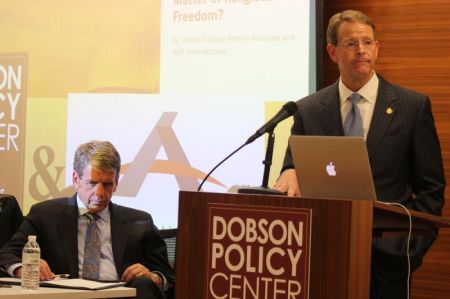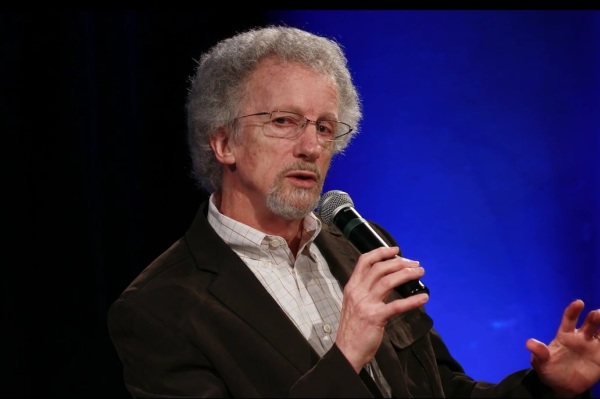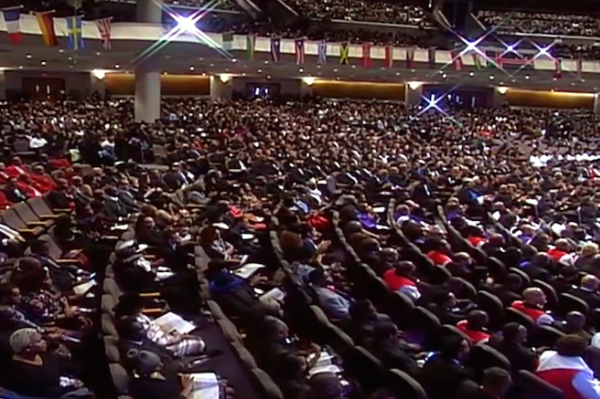Parental Rights and International Religious Freedom Intertwined, Advocates Say

WASHINGTON — Parental rights are increasingly intersecting with religious freedom, particularly the right to direct the education of ones children, defenders of religious freedom say, as the U.S. government emphasized international religious freedom last week.
Assembled at the Museum of the Bible Thursday, several religious freedom and longtime family advocates spoke of the growing hostility around the world toward religious families in a panel sponsored by the James Dobson Family Institute. The panel took place as the Ministerial to Advance Religious Freedom was happening concurrently across town at the State Department.
Michael Farris, president of Alliance Defending Freedom, speaking on behalf of the group's international branch, noted that parental rights are violated whenever governments go beyond listing the required subject matters to demand the teaching of state curriculum.
"Moreover, if a parent believes, as my wife and I believe, that God requires us to directly teach our own children, the government's international obligations require them to teach in conformity with our own religious and moral beliefs," Farris said.
When any government does go beyond that they violate the rights of parents, and it is a violation of international law for any state to enforce a total ban on home education, he added, explaining that "any nation that seeks to control what its citizens believe has crossed a line that was once crossed at great price by Nazi Germany."
"We actually have to ask ourselves as Americans whether the United States is in danger of crossing that same line with its dangerous speech codes on college campuses and the outrageous punishments leveled against businesses that dare to believe that marriage was created by God."
He went on to say that "genocide of the mind and the spirit is just as egregious as genocide of the body."
"In fact, genocide of the body is almost always related to differences of the soul and spirit. They go hand in hand. Religious freedom and parental rights are not secondary, they are not side issues. They are absolutely central to freedom, nations are not only not free, they are not civilized."
Tony Perkins, president of Family Research Council and current commissioner for the U.S. Commission on International Religious Freedom, and Mike Donnelly, senior counsel for the Home School Legal Defense Association, recounted several stories where children were either taken from their parents or had faced extreme hostility from their governments for objecting to the state schools and withdrew their kids. Among the nations they cited were Azerbaijan, Malaysia, Russia, Sweden, Norway, and Germany.
"To hear a commissioner from the United States Commission on International Religious Freedom to say how important it is to include the issue of parental rights and education as a issue of religious freedom is a dream come true for me," Donnelly said.
Parental rights are deeply rooted in human rights law and practice and are also matter of religious freedom, he stressed repeatedly, citing several international and regional agreements that establish this.
The Christian Post asked the panel for their opinion about another looming threat to parental rights, government bodies redefining "parents" based on "intent" and not biology, as is now the case in Washington state, which passed the Uniform Parentage Act earlier this year, legislation that legalized commercial surrogacy.
"Parental rights theory arises out of God-given natural law freedom," Farris replied, "and in the brave new world that we are facing, trying to translate natural law theory into strange new science is a very difficult and troubling development," he said.
"The fundamental right that we need to stand up for is the right of parents either adoptive or birth parents ... and that is hundreds of years old, that's not newly invented by any stretch of the imagination. It was the first fundamental right recognized by the United States Supreme Court in the 1920s," prior even to freedom of speech being recognized, he concluded.





















